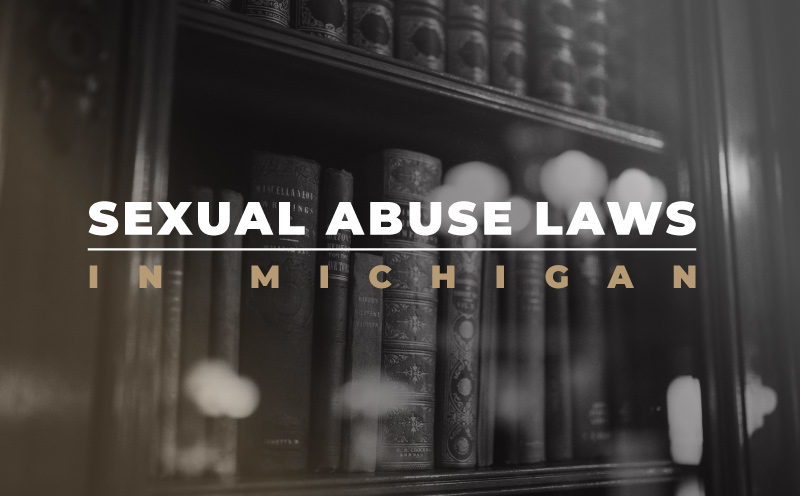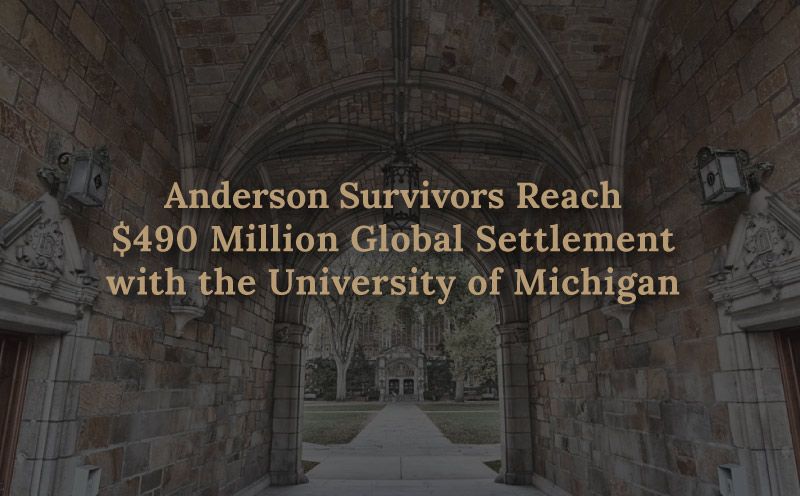Sexual Abuse Laws in Michigan

Lawsuits involving sexual abuse have gained significant attention over the past few years. The news and media have covered many high-profile sexual assault scandals involving prominent figures, such as doctors and government officials. Furthermore, various institutions are being held liable for acts of sexual assault occurring within the institutions. Specifically, claims arising from sexual assault against hospitals, educational institutions, boy-scout organizations, and religious institutions have increased dramatically over recent years. However, even with these types of cases in the spotlight recently, many still don’t fully understand sexual abuse laws in Michigan. Sinas Dramis Michigan personal injury attorneys have been handling claims against organizations and institutions on behalf of survivors of sexual assault for several years. He recently authored this article in hopes of shedding some light on the legal rights of survivors and the various laws in place in Michigan if you have unfortunately experienced this form of harm due to another person or organization.
Criminal Sexual Assault Codes
After an act of sexual abuse occurs, criminal action is commonly brought against the assailant. Michigan’s penal code recognizes four distinct criminal violations related to sexual abuse, described as Criminal Sexual Conduct (CSC) of the “first degree,” “second degree,” “third degree,” or “fourth degree,” depending on the nature and severity of the abuse. These charges are typically brought on behalf of the State of Michigan, resulting in criminal prosecution of the assailant with penalties of jail time, fines, probation, etc.
Criminal Sexual Assault Charges Occurring Within Institutions
In the context of institutional sexual assault (where sexual abuse occurred within an institution and that institution failed to protect the survivor of the abuse), criminal charges may also be brought against members of the institution under a theory of criminal negligence. For example, the dean of Michigan State University College of Osteopathic Medicine from 2002 to December 2017 was criminally charged with willful neglect of duty as a result of his lack of oversight related to a multitude of sexual assaults committed by MSU physician, Larry Nassar, while working for MSU.
Civil Sexual Assault Lawsuits
In addition to criminal charges, victims and survivors of sexual abuse may also seek redress for their injuries through civil lawsuits. Generally, a civil lawsuit arising from sexual abuse is brought against an individual or entity responsible for the abuse, seeking money as compensation for the harms caused by the abuse. Both federal and state laws addressing sexual abuse have changed in recent years with the increase in sex abuse litigation across America. In most respects, the laws have made it easier for victims to seek redress through the civil justice system. Moreover, the laws have been catered to address sexual abuse in different environments.
Federal Sexual Abuse Laws
Federal laws utilized by victims and survivors for redress include Title IX of the United States Education Amendments Act of 1972, which addresses sexual abuse in schools, and Title VII of the Civil Rights Act of 1964, which addresses sexual harassment in the workplace. Moreover, the United States Constitution recognizes and protects an individual’s right to bodily integrity and to be free from sexual abuse. These federal laws can be important to victims and survivors, especially in situations where the assailant or entity may be protected by governmental immunity laws.
Sexual Abuse Laws in Michigan
Michigan state law recognizes an intentional tort civil claim for sexual assault. In addition, Michigan’s Elliot-Larson Civil Rights Act of 1976 addresses sexual abuse in employment, housing, education, and access to public accommodations. Private institutions may also be held liable under various forms of negligence claims, including negligent hiring, negligent supervision, negligent entrustment, or negligent retention of an employee with a recognized propensity to commit an assault. These negligence claims are typically brought against non-governmental agencies such as hospitals, churches, and private clubs.
With so many evolving laws addressing sexual abuse, it is important individuals who have suffered sexual abuse understand all of their rights under both federal law and Michigan state law. Understanding the laws designed to remedy harms caused by sexual abuse can significantly increase a victim or survivor’s options for compensation. Hopefully, the laws continue to improve on addressing and remedying sexual abuse within our society for years to come.
RELATED INFORMATION:




